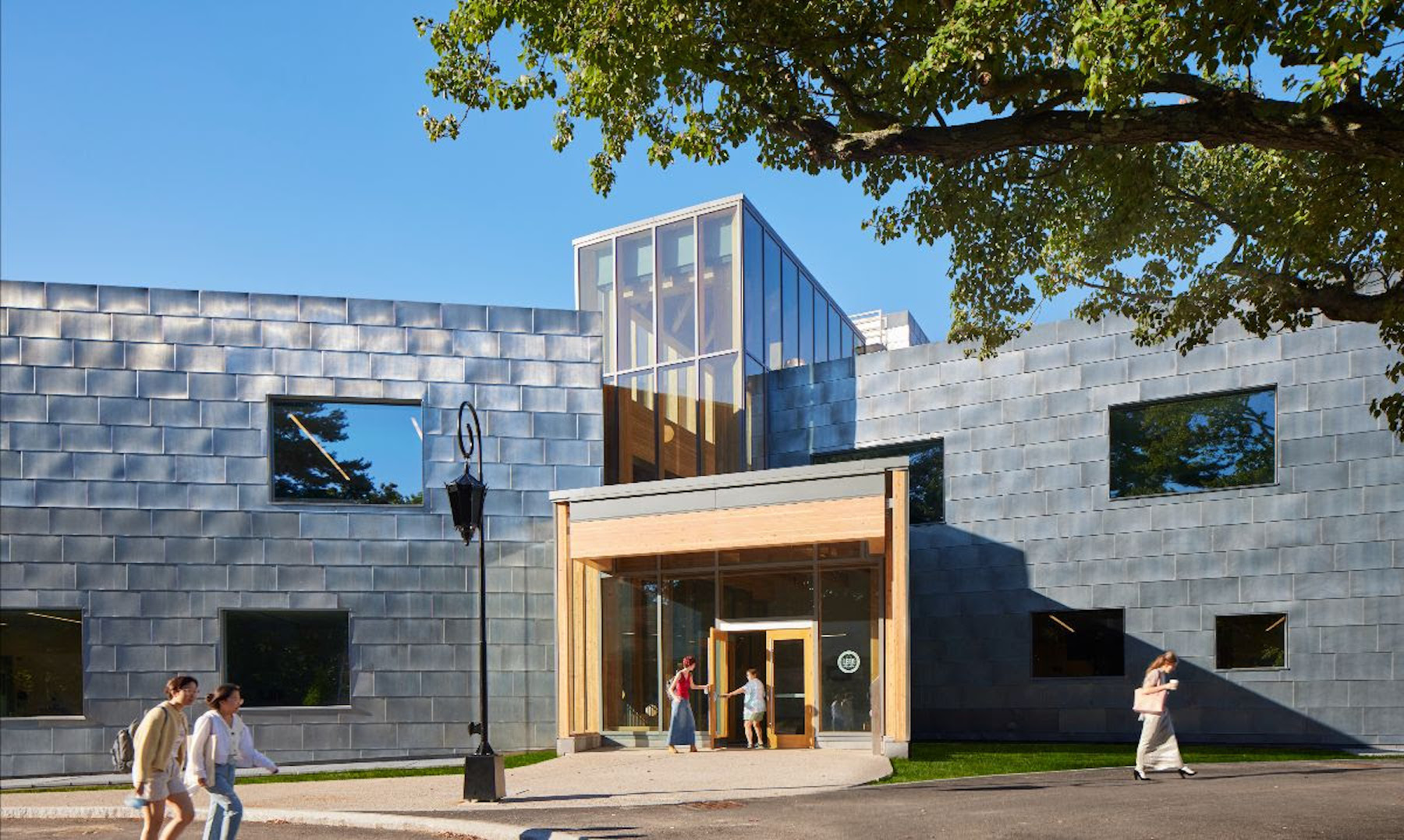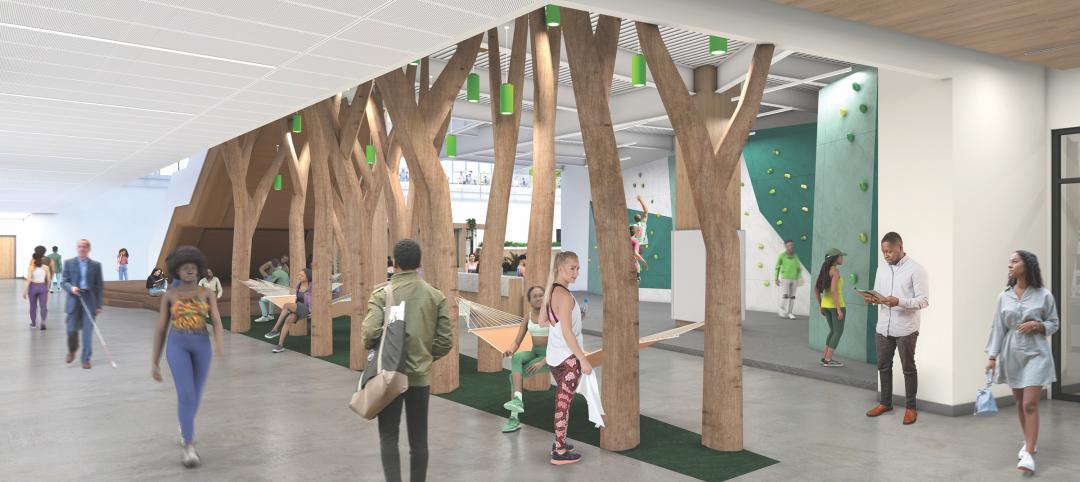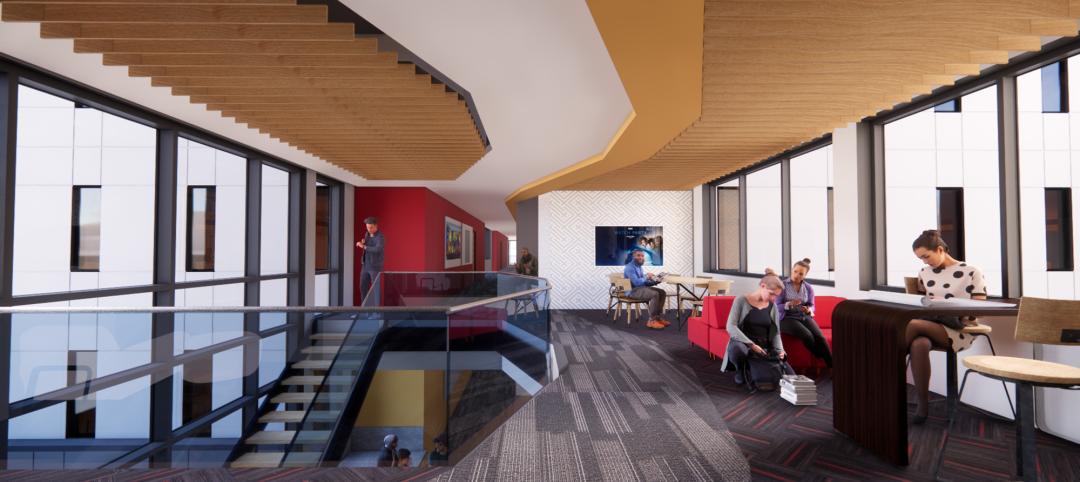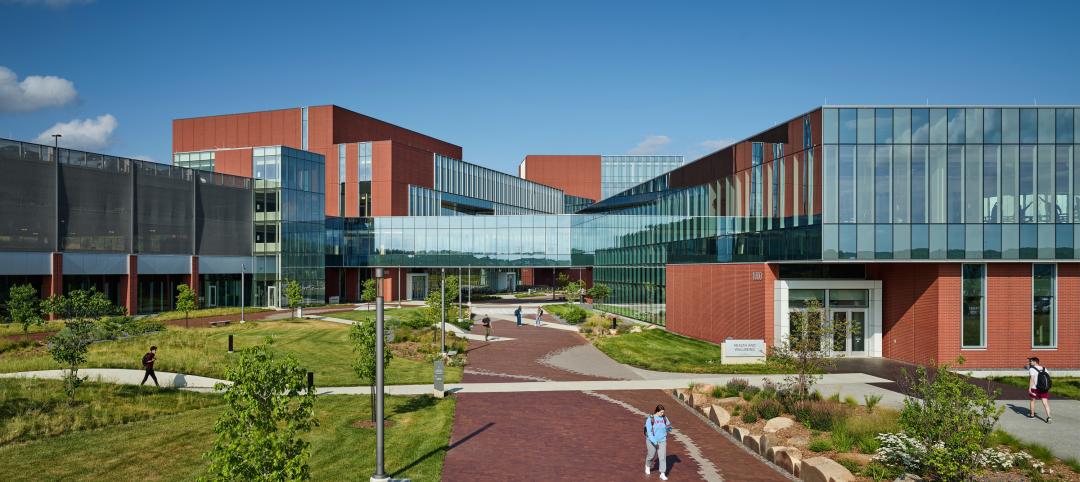A recently completed expansion and renovation of Wellesley College’s science complex yielded a modernized structure for 21st century STEM education while preserving important historical features. The project represents “one of the largest and most ambitious building
projects in the college’s modern history,” according to Wellesley College and Skidmore, Owings & Merrill (SOM), the project’s architects.
The building’s signature space, the Focus, a multi-story atrium, was created by enclosing the space between an L-shaped wing and the neighboring Sage Hall. The neo-Gothic brick facade of Sage Hall forms one wall within the modernist atrium, creating an interplay between old and new. Renovation of the L-wing preserved the architectural integrity of the space, including the original brick wall, while demolishing the rest of Sage Hall to make way for the addition. With expansive laboratory spaces and exposed concrete and mechanical systems, the L-wing boldly contrasts with the more traditional architectural styles of the Wellesley campus.
The project encompasses Science Hill—the setting for multiple science facilities. It linked the existing Whitin Observatory, the Global Flora Conservatory, the arboretum, and the botanic gardens. The new complex is immersed in a reimagined landscape, which introduces new gardens that will be used for scientific and ecological pedagogy. As part of the curriculum, the landscape will be installed by students and faculty next spring.
The new structure, distinguished by a ship-lapped, zinc-paneled facade, was conceived as a series of pavilions with strong connections to the outdoors. The interior layout organizes similar fields of study together, situating classrooms, faculty offices, and laboratories according to discipline.
A central spine, the Chao Foundation Innovation Hub, connects the mix of old and new buildings and makes them intuitive to navigate. Built with mass timber, this multistory cascade of spaces offers double- and triple-height interiors with views of the landscape. Breakout areas fill the space, with windows that reveal the laboratory spaces in the surrounding buildings, putting science on display and enhancing the sense of a village atop Science Hill.
The project significantly improved the Science Complex’s sustainability performance and plays a key role in the college’s goal of carbon neutrality by 2040. Before this project, the science buildings consumed more energy than any other areas on campus. Now, the complex is among the most environmentally efficient. Design measures such as stormwater capture, new piping and mechanical systems, more natural lighting, the use of mass timber and recycled zinc, and the preservation of as much of the original structures as possible, helped the project achieve LEED Platinum certification.
On the Building Team:
Owner and/or developer: Wellesley College
Design architect: Skidmore, Owings & Merrill
Architect of record: Skidmore, Owings & Merrill
MEP engineer: BR+A Consulting Engineers
Structural engineer: Le Messurier
General contractor/construction manager: Turner Construction Company
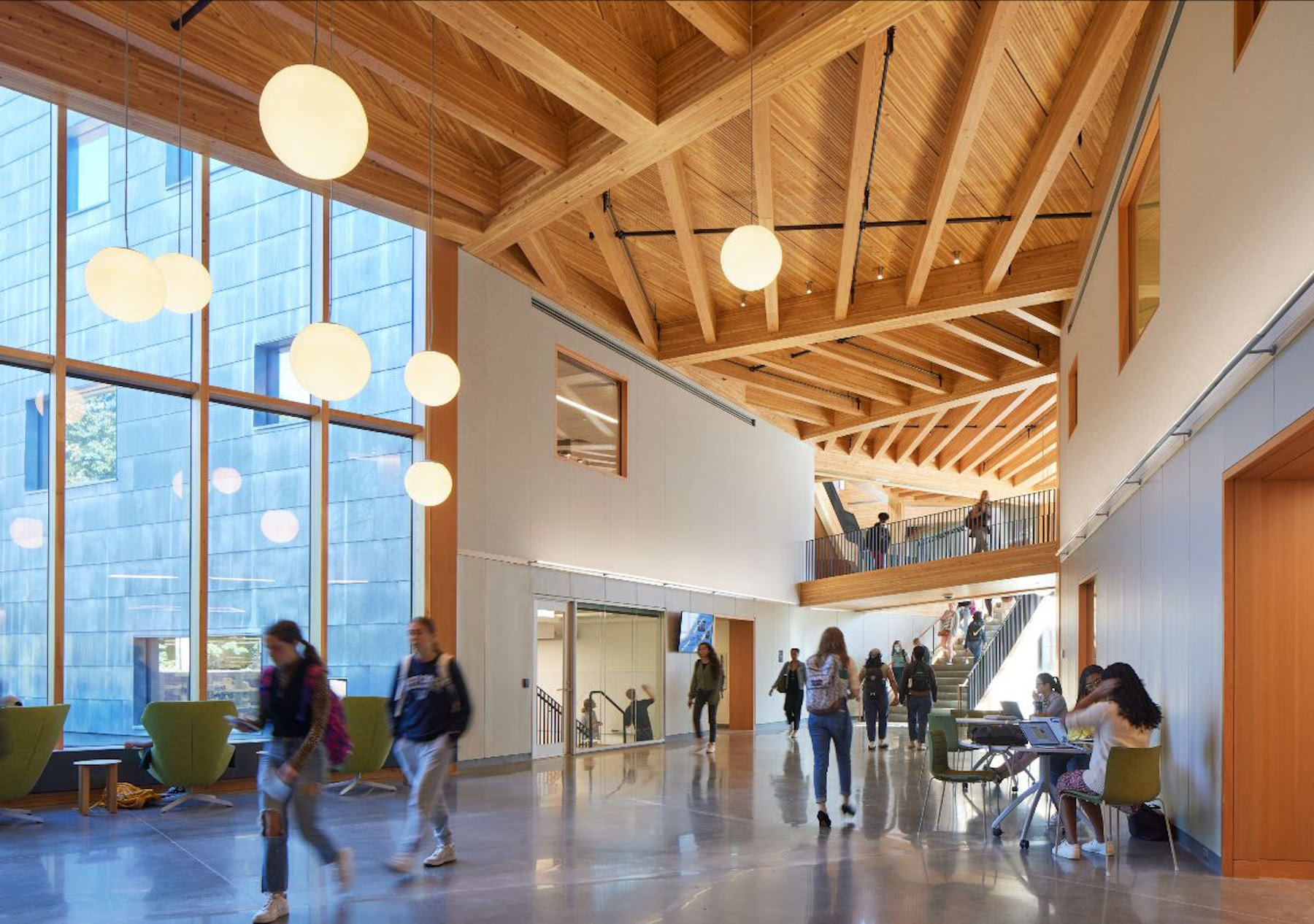
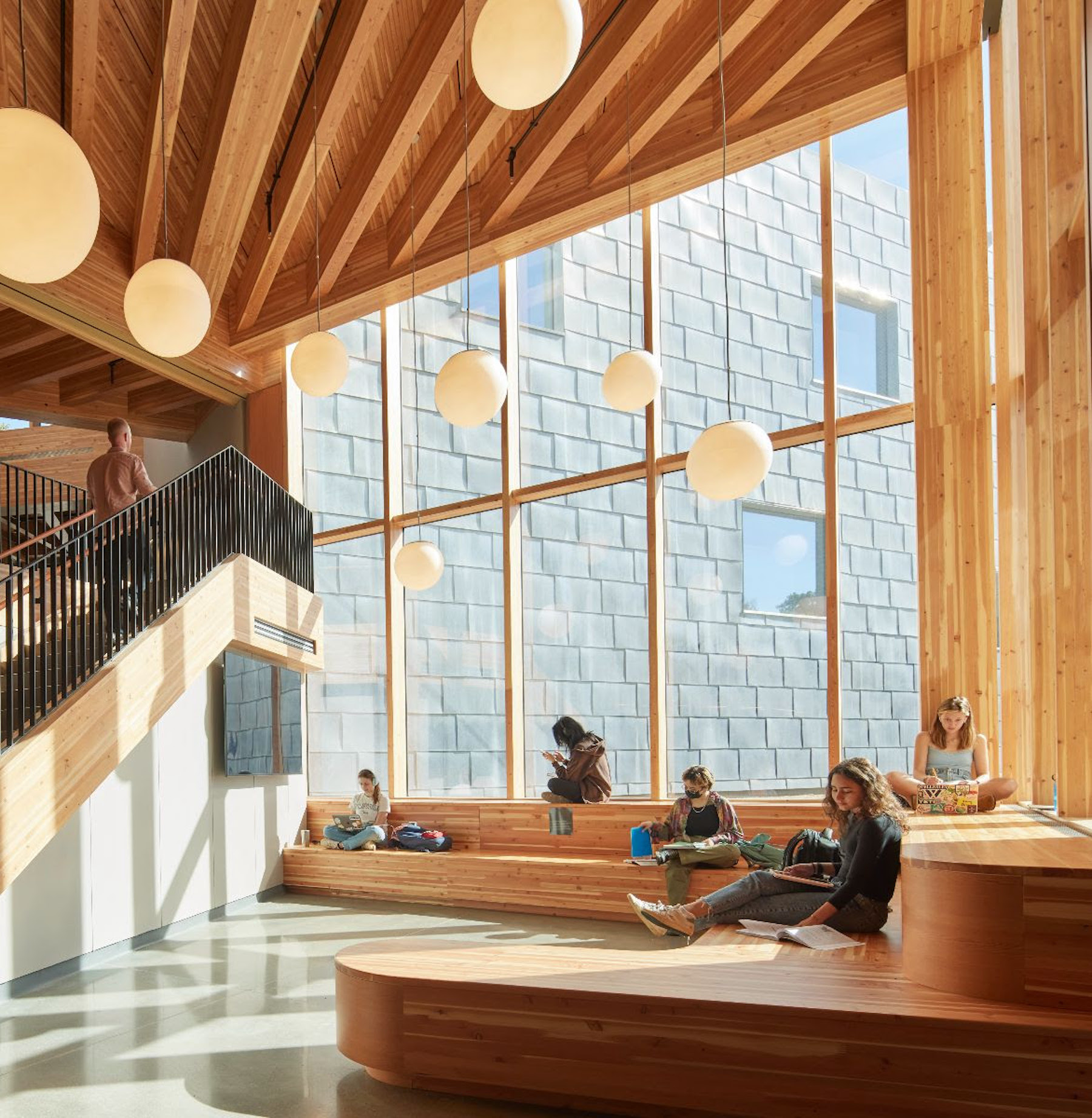
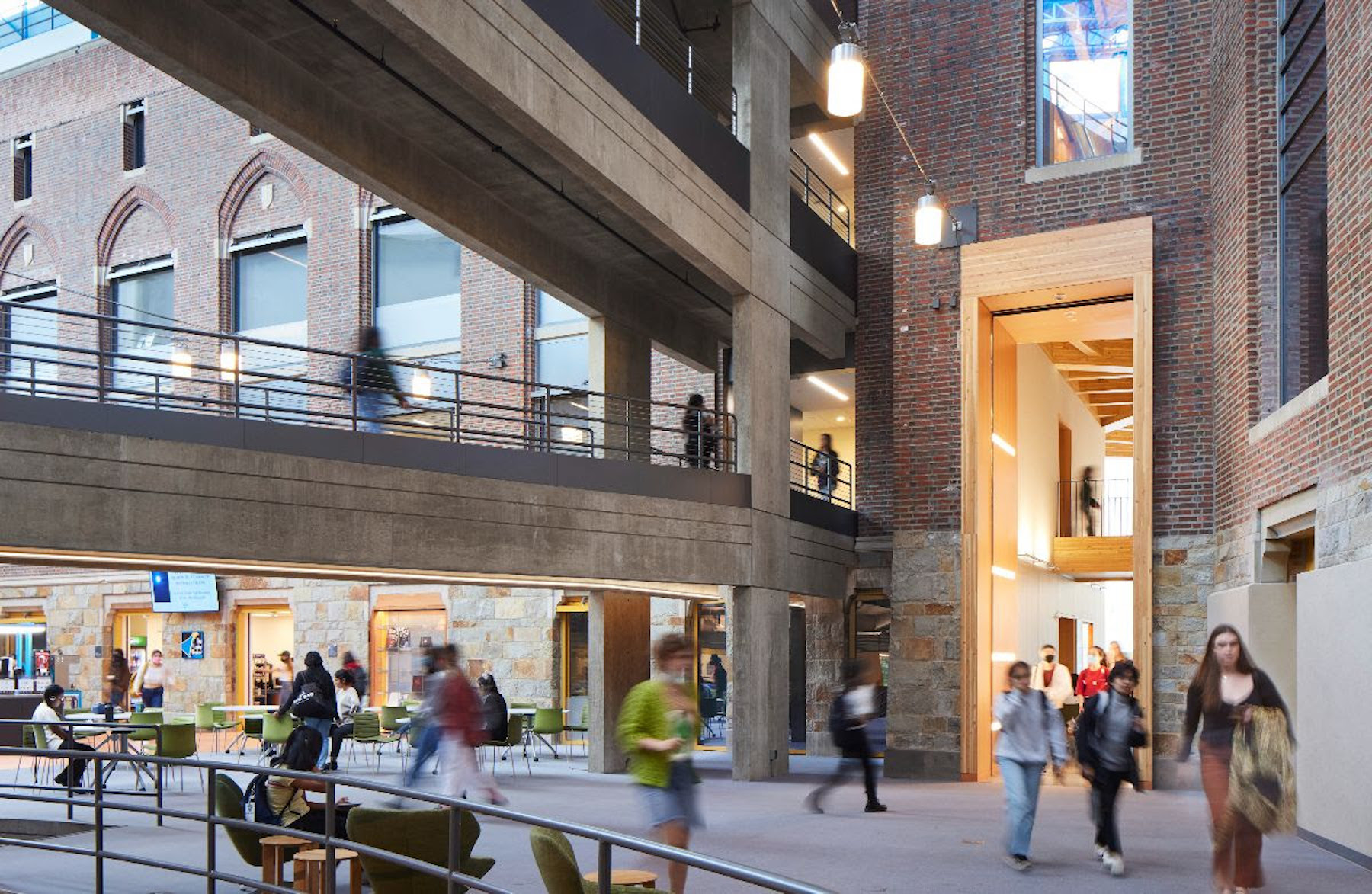
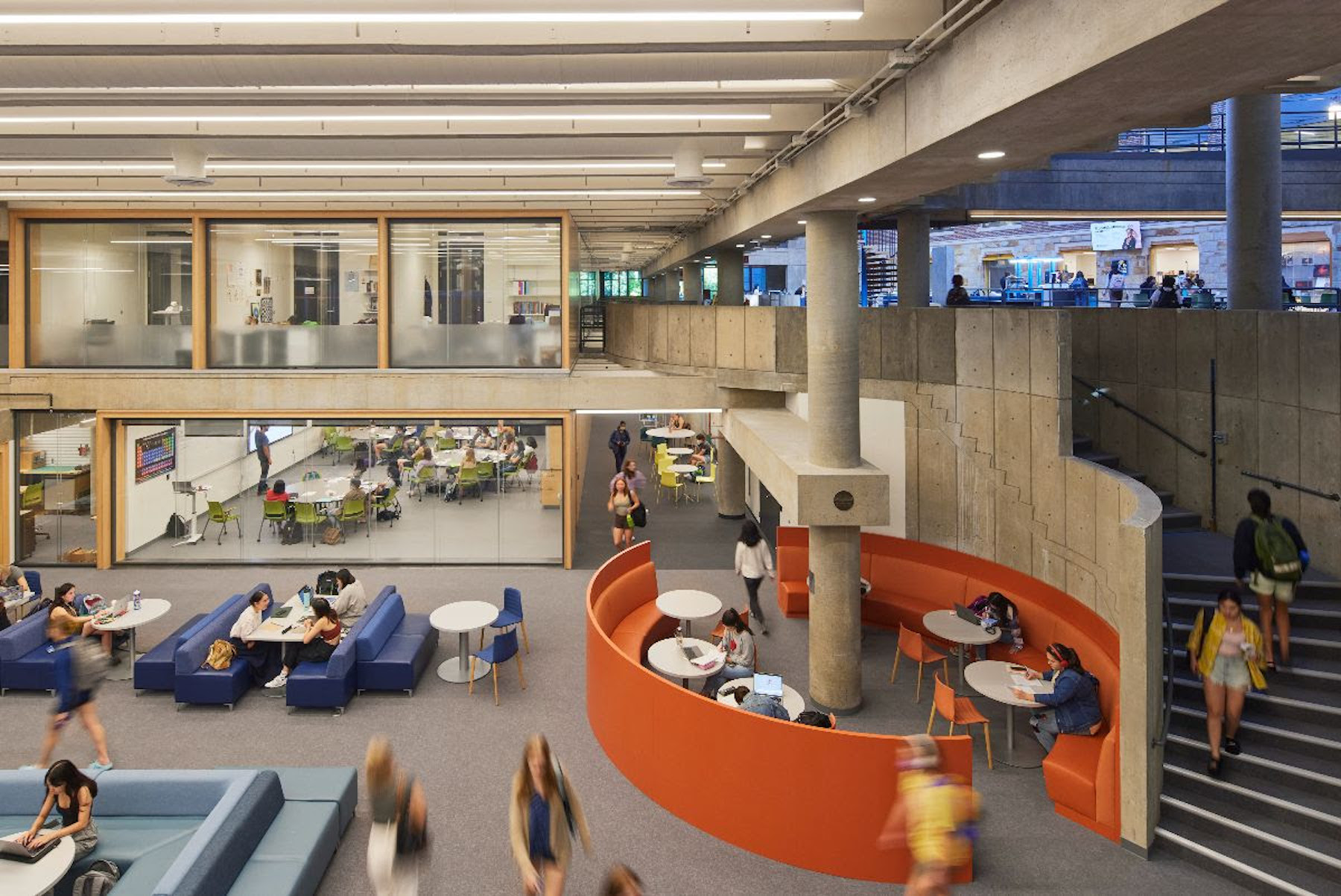
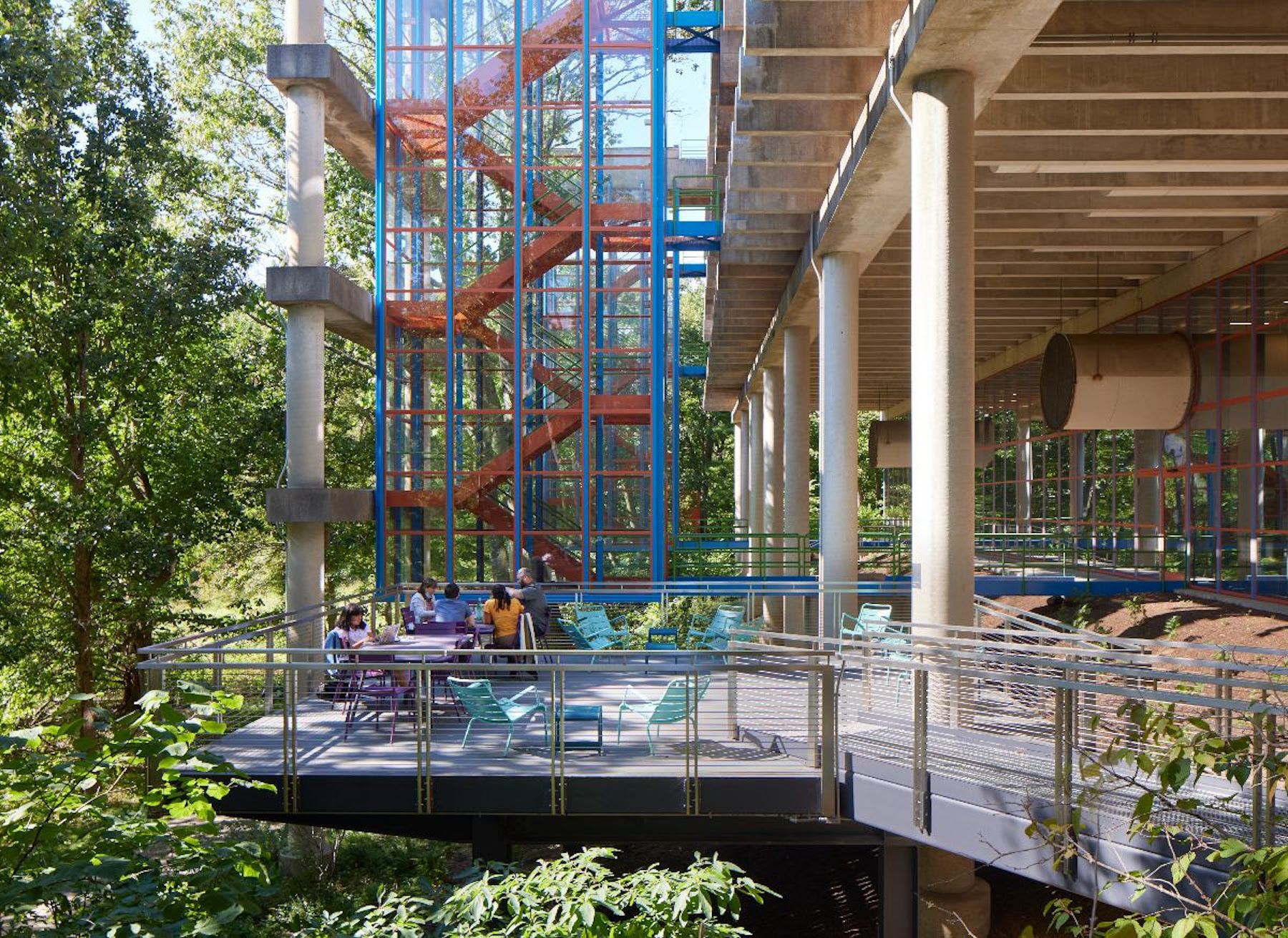
Related Stories
Libraries | Oct 30, 2024
Reasons to reinvent the Midcentury academic library
DLR Group's Interior Design Leader Gretchen Holy, Assoc. IIDA, shares the idea that a designer's responsibility to embrace a library’s history, respect its past, and create an environment that will serve student populations for the next 100 years.
Healthcare Facilities | Oct 18, 2024
7 design lessons for future-proofing academic medical centers
HOK’s Paul Strohm and Scott Rawlings and Indiana University Health’s Jim Mladucky share strategies for planning and designing academic medical centers that remain impactful for generations to come.
University Buildings | Oct 15, 2024
Recreation and wellness are bedfellows in new campus student centers
Student demands for amenities and services that address their emotional and mental wellbeing are impacting new development on college campuses that has led to recreation centers with wellness portfolios.
Higher Education | Oct 14, 2024
Higher education design for the first-gen college student
In this Design Collaborative blog, Yogen Solanki, Assoc. AIA, shares how architecture and design can help higher education institutions address some of the challenges faced by first-generation students.
University Buildings | Oct 9, 2024
Des Moines University Medicine and Health Sciences opens a new 88-acre campus
Des Moines University Medicine and Health Sciences has opened a new campus spanning 88 acres, over three times larger than its previous location. Designed by RDG Planning & Design and built by Turner Construction, the $260 million campus features technology-rich, flexible educational spaces that promote innovative teaching methods, expand research activity, and enhance clinical services. The campus includes four buildings connected with elevated pathways and totaling 382,000 sf.
University Buildings | Oct 4, 2024
Renovations are raising higher education campuses to modern standards
AEC higher ed Giants report working on a variety of building types, from performing arts centers and libraries to business schools. Hybrid learning is seemingly here to stay. And where possible, these projects address wellness and mental health concerns.
Museums | Oct 1, 2024
UT Dallas opens Morphosis-designed Crow Museum of Asian Art
In Richardson, Tex., the University of Texas at Dallas has opened a second location for the Crow Museum of Asian Art—the first of multiple buildings that will be part of a 12-acre cultural district. When completed, the arts and performance complex, called the Edith and Peter O’Donnell Jr. Athenaeum, will include two museums, a performance hall and music building, a grand plaza, and a dedicated parking structure on the Richardson campus.
Higher Education | Sep 30, 2024
Studio Gang turns tobacco warehouse into the new home of the University of Kentucky’s College of Design
Studio Gang has completed the Gray Design Building, the new home of the University of Kentucky’s College of Design. In partnership with K. Norman Berry Associates Architects, Studio Gang has turned a former tobacco warehouse into a contemporary facility for interdisciplinary learning and collaboration.
Higher Education | Sep 18, 2024
Modernizing dental schools: The intersection of design and education
Page's John Smith and Jennifer Amster share the how firm's approach to dental education facilities builds on the success of evidence-based design techniques pioneered in the healthcare built environment.
Libraries | Sep 12, 2024
How space supports programming changes at university libraries
GBBN Associate Sarah Kusuma Rubritz, AIA, uses the University of Pittsburgh's Hillman Library to showcase how libraries are transforming to support students’ needs.


